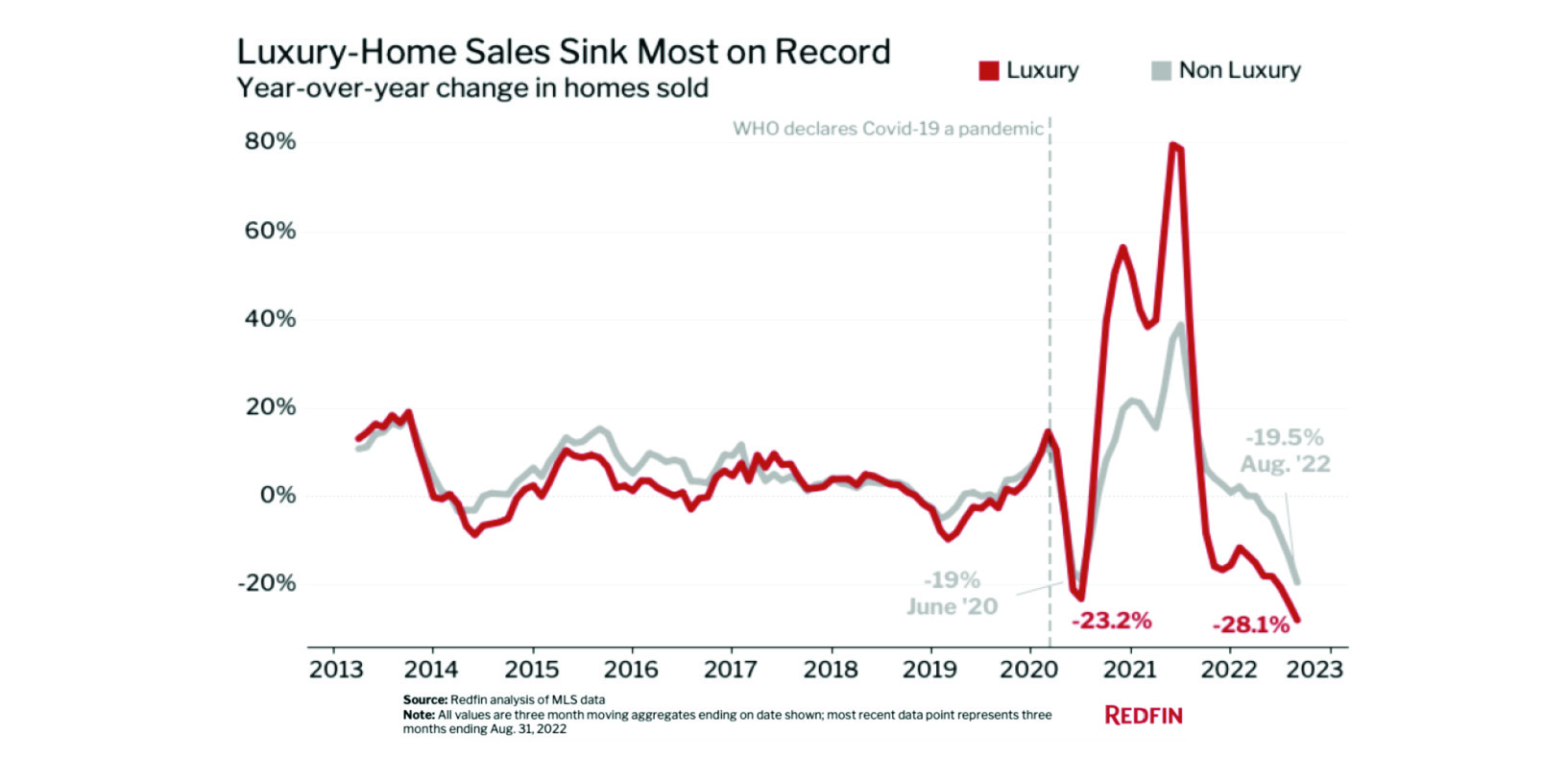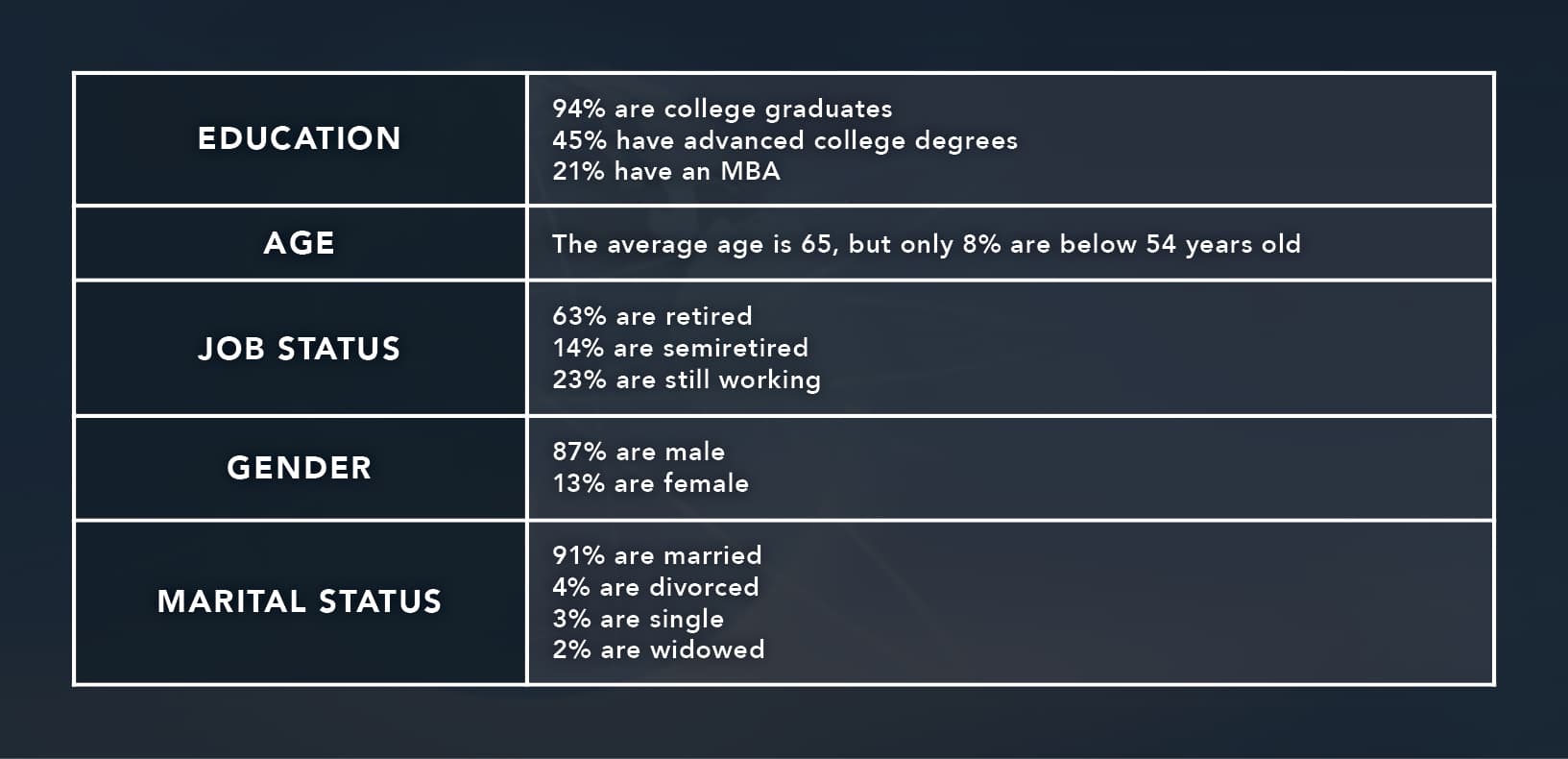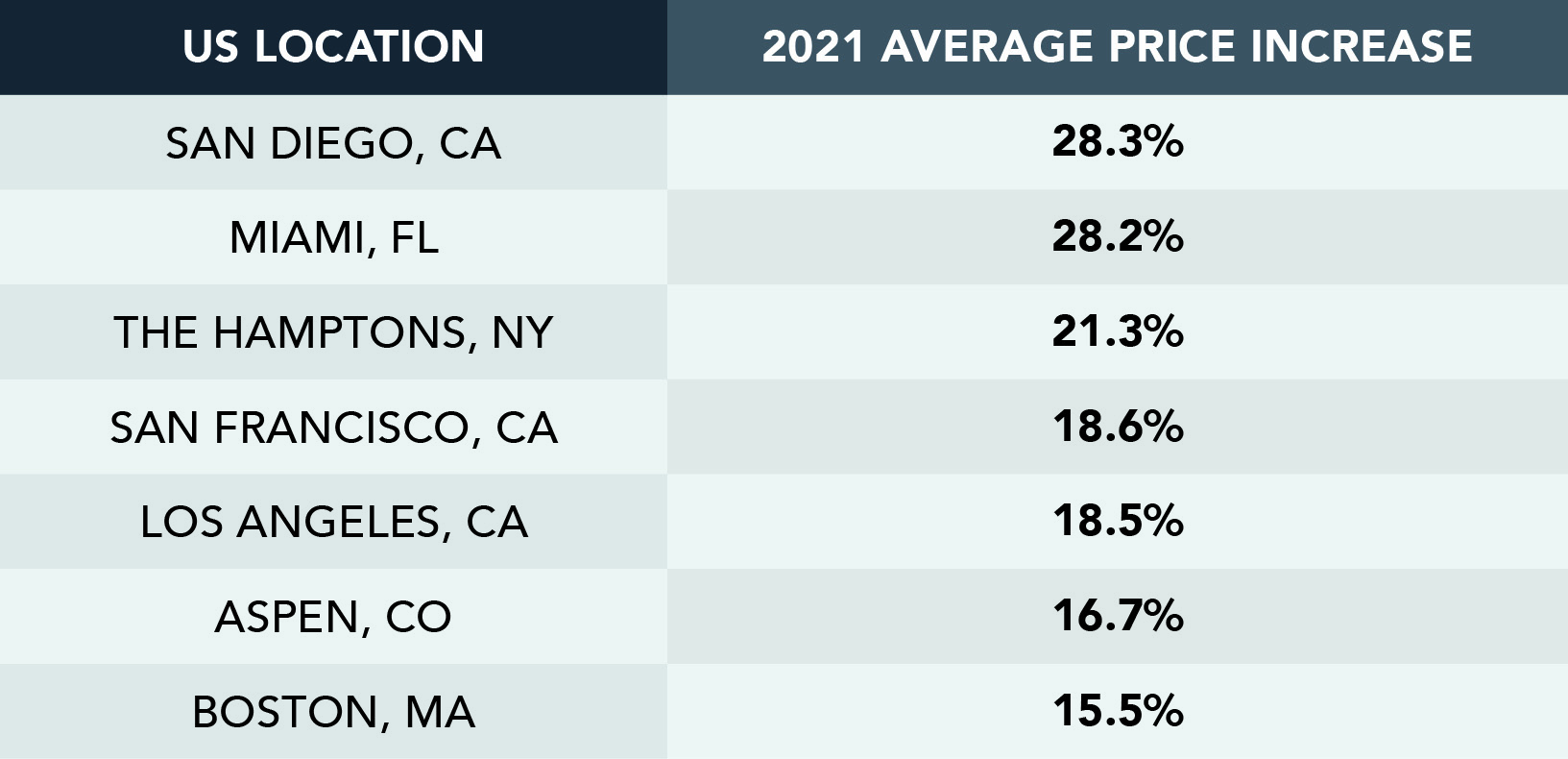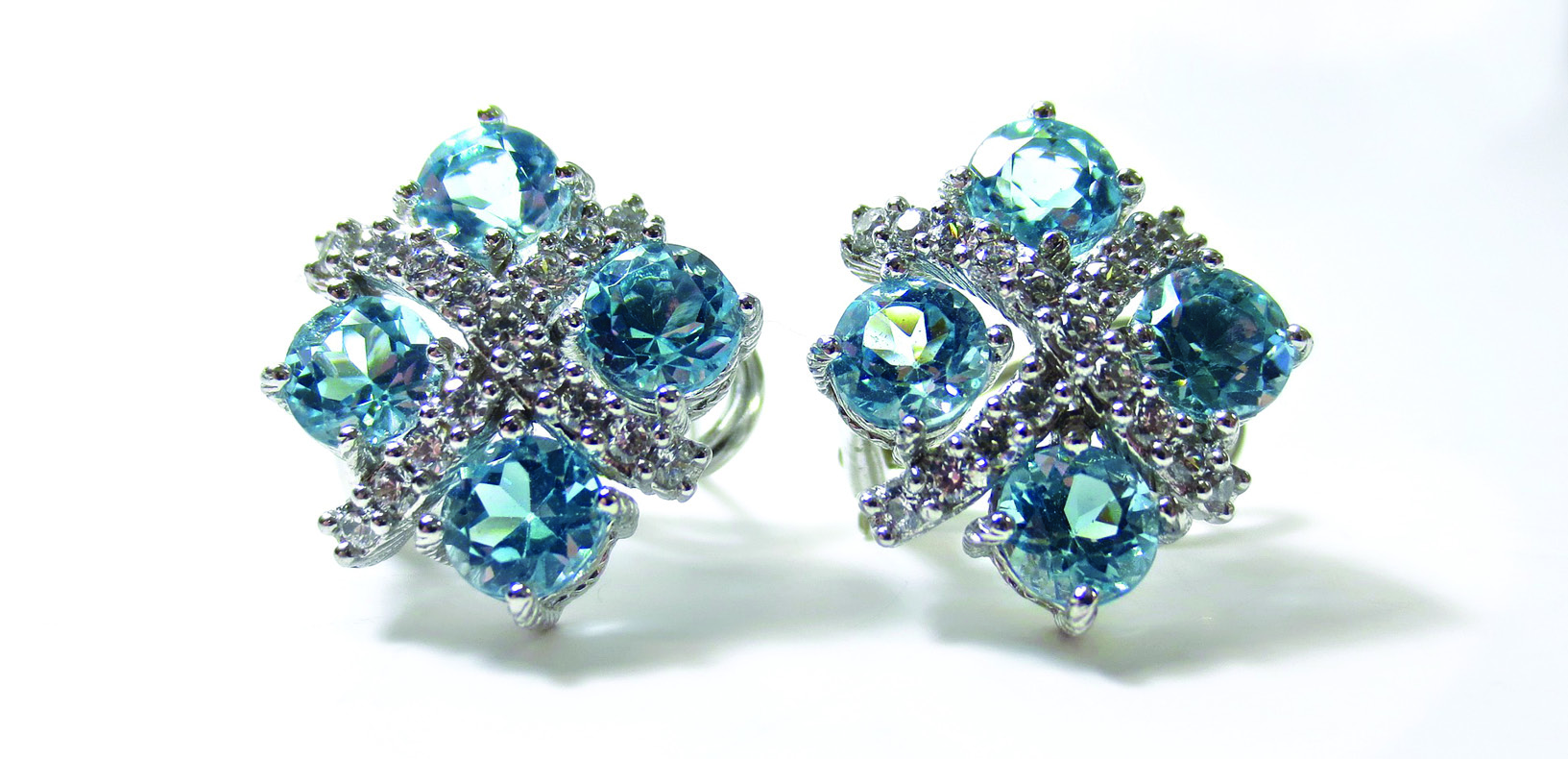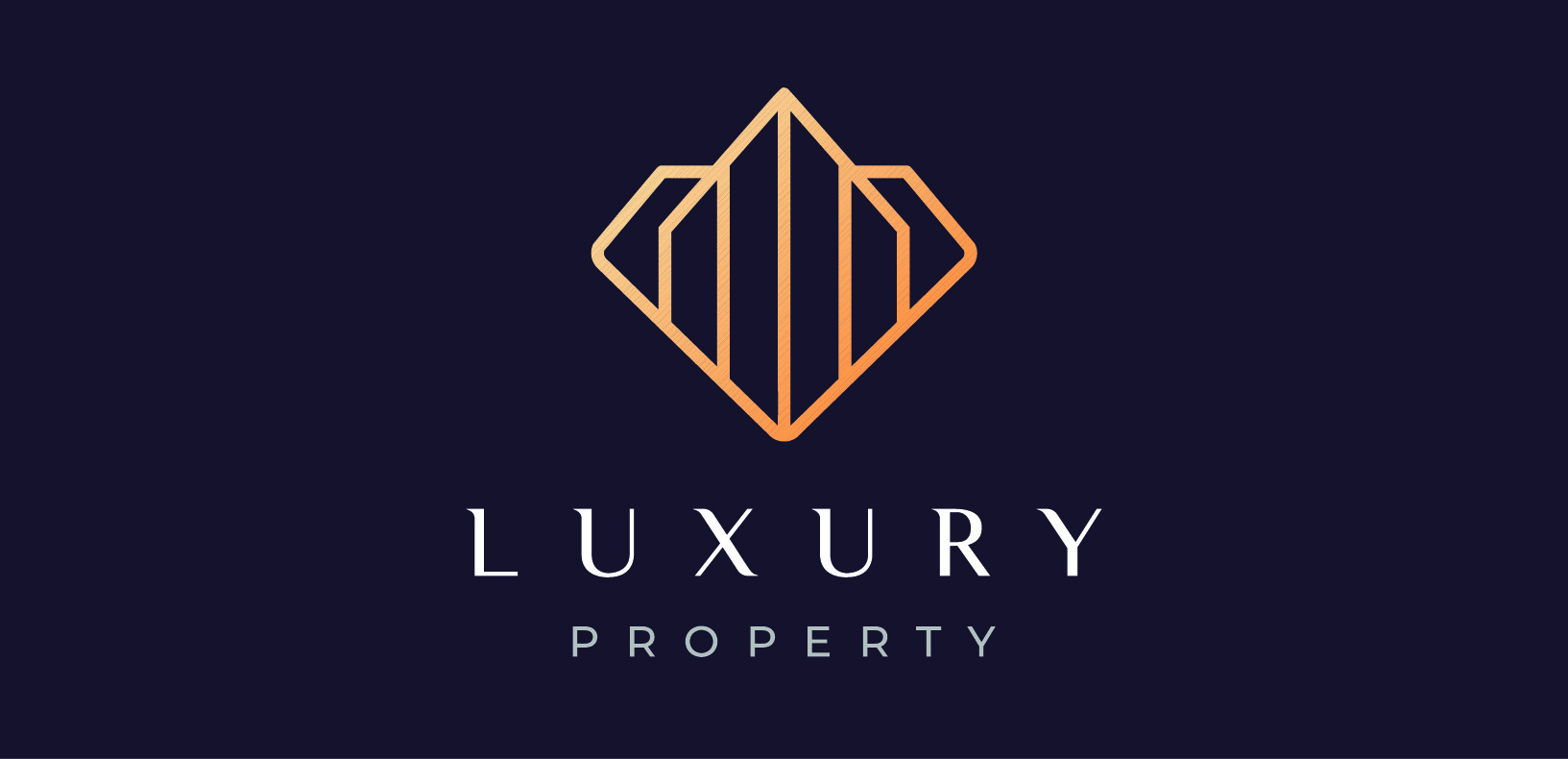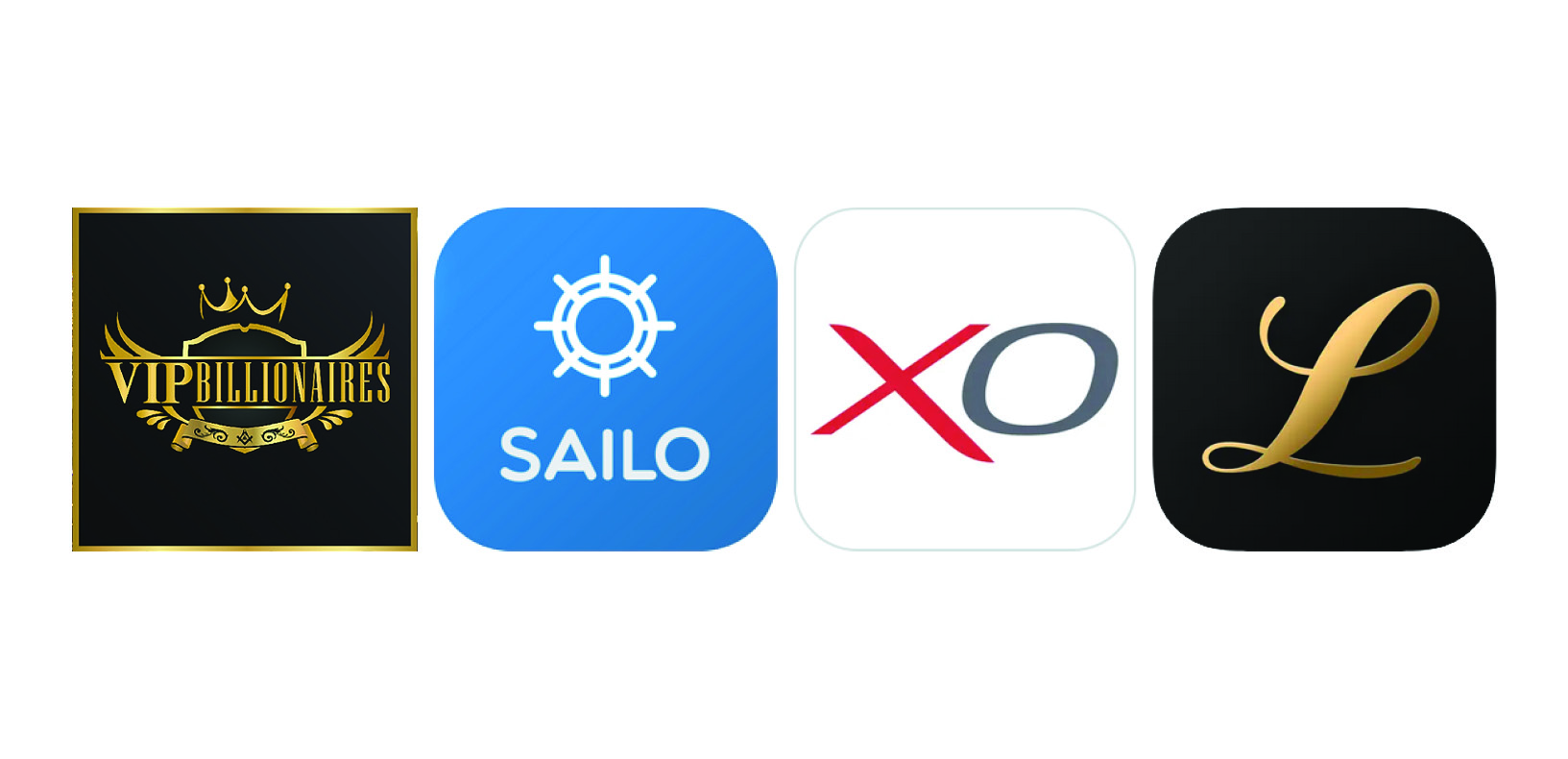Congratulations! You’ve found what you’ve been looking for: a comprehensive source that addresses everything you need to know most about breaking into the luxury market. Best of all, it does it all in ONE place.
Read on to discover:
- Why you might (or might not) choose to become a luxury real estate agent.
- Who swims in the pool of wealthy clients, and the characteristics they tend to have in common.
- Where to find wealthy real estate clients.
- What significant trends are helping to define the luxury market and where it’s headed.
- How to successfully market to this segment of homebuyers and sellers.
What are you waiting for? Bookmark this page!
The perks and pitfall of working with affluent clients
Yes, you are going to make mucho dinero selling luxury real estate. The commissions earned by luxury real estate agents are often enough reason to pursue this niche market. But there are other advantages to working with wealthier clients as well.
First, the perks . . .
The properties. A day at the office for a luxury home real estate agent might mean touring a home that—for starters—comes with a kitchen equipped with Gaggenau appliances, living areas furnished with the finest Italian leathers, an entranceway set off by a ginormous Waterford crystal chandelier, horse stables that house champion stallions, and a multi-level garage boasting the most prestigious objects on four wheels.
Fewer properties. Traditional real estate agents would need to sell more homes than high-end REALTORS® if they wanted to enjoy the same standard of living. Higher commissions mean needing to sell only a handful of homes a year as opposed to a dozen or more modestly priced homes.
Deeper relationships. Selling fewer homes means working with fewer clients. Fewer clients means being able to put in the extra effort that will help you form stronger, more lasting relationships with them.
Greater prestige. Don’t underestimate the power that comes from rubbing elbows with professional athletes, movie stars, television personalities, influencers, CEOs, and the like. You can drop names to enhance your reputation, impress others enough to earn referrals, and perhaps become a part of your clients’ social circles.
Diversity of clients. The wealthiest people in the world come to the US to buy property.
Now, the pitfalls . . .
As appealing as these benefits are, there is a price to pay for working with wealthy people—it’s not all glitz and glamour. Selling luxury real estate means:
Fewer and more consequential listings. According to the National Association of REALTORS® (NAR), only 20% of first-time and repeat home buyers bought a home worth $500,000 or more. Pandemic aside, there isn’t that much luxury real estate for sale at any given time. Consequently, when there are fewer homes for sale and you don’t sell that many in a given year, each transaction becomes much more important.
Tougher sales. The majority of luxury homes are built to suit their original owners. The private bowling lanes that the current homeowner couldn’t live without may not be what a prospective buyer had in mind. It can take much longer and require far more perseverance to match the right owner with the right luxury property. Couple this with the higher ticket price, and these homes will be on the market for longer periods—making the time between commission checks longer too.
Higher expectations. Working with high-net-worth and ultra-high-net-worth individuals often requires that you put your own needs aside. These folks are busy people, so your time is theirs, and their time is valuable. They are also accustomed to the best of everything, and that includes the best service. You can get a first-hand account of what it is like to work with affluent clients by listening to our interview with J.B. Andreassi of Million Dollar Beach House and Selling the Hamptons.
Economic pressures. Even the wealthy elite have money issues. While mortgage rates may not be a deterrent since many luxury home buyers prefer to pay with cash, downturns in the market, inflation, and other economic pressures can proportionately hurt the rich in ways similar to the rest of us. Case in point, Redfin reports that the sale of US luxury homes plunged 28.1% year over year from June 1 to August 31, 2022. That’s the biggest drop since Redfin began keeping track in 2012 and includes the 23.2% drop during the pandemic.
Higher marketing costs. Never forget that impressions matter. Single-property web pages, aerial photography, professional photos, glossy brochures, staging, exclusive events—these are only a few places where you can expect to spend what will necessarily need to be a higher marketing budget.
A portrait of the luxury home buyer
When it comes to painting a picture of the luxury home real estate client, there are characteristics that help to define the group as a whole. Even so, it is critically important that as a luxury home REALTOR®, you develop a deep understanding of each client’s likes, dislikes, needs, values, and priorities.
How rich is rich?
It’s critically important to know your luxury audience, so it helps to understand the range of wealth represented by luxury home buyers. Designated by the financial industry as high-, very high-, and ultra high-net-worth individuals, each category is defined by a person’s liquid assets (cash or assets that can quickly be converted to cash without losing any, or very little, value):
- A high-net-worth individual (HNWI) generally has at least $1 million in liquid assets.
- A very high-net-worth individual (VHNWI) has at least $5 million.
- An ultra high-net-worth individual (UHNWI) has $30 million or more.
In 2020, The Advisor Coach published demographic data representative of UHNWIs that is still largely accurate:
Still, something unexpected happened during the COVID-19 pandemic: the rich got much richer, and their numbers swelled. Real Assets Adviser reports that:
- In 2020, there were 26 million American millionaires. In 2019, that number was between 20 and 21 million.
- Also in 2020 and across the globe, the number of UWHNI grew by 1.7% to 300,000 people. Of that number, 101,240 were in the US—an increase of 8.4% from the previous year.
- Between 2020 and 2021, the wealth of the world’s 2,755 billionaires exploded from $8 trillion to $13.1 trillion.
Soaring stock prices and swelling real estate valuations account for much of this phenomenal growth. It remains to be seen what impact the current global economic situation might have on these numbers, but one thing is certain: rising mortgage rates will not be a concern to those who largely pay cash for their homes.
Other recent trends described by Real Assets Adviser that help us better understand the wealthy include:
- Even though their numbers represent the smallest group, wealthy people aged 50 and younger saw their fortunes grow faster during the pandemic than all other groups. This group heavily invested in digital assets and technology stocks, which were buoyed by the need to work from and remain at home.
- Most UHNW individuals are between the ages of 50 and 70. These are the self-made baby boomers, experienced investors with wealth from life-long careers, and those who work but who have also inherited fortunes. The transfer of wealth to the next generation that so many financial professionals have been predicting came a bit sooner than expected as this group confronted the pandemic, rethought retirement plans, and took part in the Great Resignation.
- The group to most benefit from the massive transfer of wealth (predicted to be about $15 trillion over 5 years) will be women. Women are expected to receive 27% of this wealth as opposed to 5% for men. But even as more women, including women of color, are becoming entrepreneurs and inheriting wealth, they still make up only 10% of the UHNW population.
Very rich and ultra-rich investors continue to embrace traditional assets such as stocks and bonds, and alternative assets like hedge funds, private equity, real estate, and infrastructure.
Demographics and psychographics
As distinct as people are from one another, the affluent tend to share some traits. Of course, a significant part of your job as a real estate agent will be to get to know your clients as individuals, but having a baseline is always helpful—especially when deciding how to market to and attract this segment of the population.
According to CNNMoney, the wealthy are:
- Super busy (but also efficient). This means their time is valuable, and they will expect you not to waste it.
- Energetic: Perhaps it’s due to their entrepreneurial spirit, but wealthy people tend to be optimistic, upbeat, and can get by on less sleep than many of us.
- Confident. They set goals and believe they will reach them. They also believe (and expect) others to be able to solve problems.
- Astute. They know what they don’t know and surround themselves with people who are experts—and that includes their real estate agents.
- Unpretentious. Even as their wealth increases, rich people tend not to continuously upgrade their lifestyle.
In 2019, Coldwell Banker took a special interest in millennial millionaires. They discovered that this cohort understands the benefits of investing in real estate, including the tax advantages, appreciation, and the cash flow. Additionally, this group has tended to marry younger than their counterparts and limit their family size to one child.
As you might expect, affluent millennials appreciate their technology and expect home amenities to include smart appliances and ultramodern operations. They also enjoy convenience and spend money on fitness, spas, and other activities that benefit their overall health. (Millionaires exercise more than the average person).
Finally, charitable giving remains high on the list of things that most wealthy people in the world value: 56% of millennial millionaires donate to charity.
Where the wealthy live, work, and play
In 2021, as the price of luxury homes rose faster than at any other point in documented history, real estate became the investment of choice for UHNWIs across the globe. The PIRI 100, which tracks 100 luxury real estate markets from around the world, included six US cities among the top 20 with the greatest average price increases:
Several of these cities were already popular locations among the wealthy. According to Statistica, in 2021 there were approximately 233,500 UHNWIs living in North America—the most of any region—with the majority living in New York and San Francisco. Asia and Europe rank second and third with roughly 169,900 and 154,000 UHNWIs, respectively.
A similar pattern applies to the concentration of HNWIs. You’ll find millionaires living in New York, San Francisco Bay Area, Los Angeles/Malibu, Chicago, Houston, and Dallas-Fort Worth.
As you might imagine, for entertainment, the world’s richest families enjoy leisure activities representative of a luxury lifestyle, including: traveling the world; collecting cars, jewelry, and watches; attending art and museum exhibits; cruising on yachts; horseback riding; fine dining; flying private jets; and shopping for high-end apparel, home décor, and furniture.
Finally, you’ll find the uber rich on social media, but with the exception of those who made their money with social media (e.g., the Kardashians), they don’t hang out for hours at a time. A 2020 article reports that millionaires spend less than 2.5 hours per week on social media. (The average user spends about 14 hours per week.) Instead of scrolling, the affluent spend their time reading (5.5 hours per week compared to 2 hours for the average person) and caring for their families (8.5 hours per week versus 3.6 hours per week).
Trends that are defining the luxury real estate market
Though the information I’ve presented so far is largely drawn from resources published in 2022, the global economy is quickly and dramatically changing fortunes daily.
While the elite can often ride out economic downturns, the far-reaching effects of a global pandemic, inflation, and war are being felt by everyone, albeit not in the same ways. Even so, agents, home builders, contractors, and others who work in the luxury real estate market have noted trends among those with the money to indulge them. All this being said, in volatile times, it’s wise to keep your ear to the ground and your eyes on the industry.
Eco-friendly homes
Among the concerns about climate change and an increase in large-scale, severe weather events, and with more and greater efforts to better protect the environment and the world’s limited resources, different countries, industries, and individual people are doing what they can to heal the earth’s wounds.
Knight Frank’s Wealth Report 2020 shows significant trends among the wealthy to ensure sustainable living. This embracing of all things green means hiring construction companies with LEED certification; buying carbon-neutral, energy-efficient homes; building with locally sourced and recycled materials; installing solar panels; including geothermal heating and cooling systems; and purchasing energy-efficient lighting and appliances.
Cryptocurrency
The most expensive condominium in Miami history sold in May 2021 for $22.5 million, and the entire transaction was complete in less than 10 days using cryptocurrency. And it’s not the only property in the US or elsewhere to change hands using crypto: from Ukraine, to South America, and many countries in between, wealthy people are using crypto to buy properties.
There is little wonder that the ultra-rich are using virtual currency to buy out-of-this-world properties. Dozens of new billionaires were created in 2021, and many of them were born of cryptocurrency.
Recently, Vanessa Saunders, the founder, CEO, and principal broker of Global Properties Systems Real Estate (GPS), warned our podcast listeners that blockchain technology and cryptocurrency are disrupting the real estate industry to a greater extent than the internet ever did. This is especially true among the wealthy. And she should know: Vanessa recently ensured that GPS would be the first blockchain and cryptocurrency certified real estate brokerage in New York.
Aesthetics
Tastes change with time. Moving into 2023, you’ll find several popular luxury-defining amenities and comforts among people looking to invest in luxury real estate:
- Privacy, expansive views, two kitchens, and space to expand (Source);
- Smart home technology, an outdoor kitchen and pool, game and theatre rooms, spa bathrooms, and exercise rooms (Source); and
- Modern floor plans with a grand entryway, high ceilings, and large windows; large closets and dressing rooms (Source)
Marketing to high-end real estate clients
The information provided above is intended to help real estate agents who aspire to work with the world’s wealthiest understand their target audience. Without it, you’d have a difficult time deciding what marketing messages and channels will attract potential clients. Even so, as you study your specific niche within the luxury real estate market, you may add or subtract details from the picture I’ve painted above.
However, the marketing tactics suggested below are ones you’ll want to employ across the luxury market and regardless of specific niche—simply because they make sense given the expectations of wealthy clients.
Get the right credentials
Here’s a simple fact: appearances matter. For that fact alone, having the right credentials makes a difference in the eye of the luxury client—especially if you have a relevant credential that a competing agent does not.
The Institute of Luxury Home Marketing offers agents a Certified Luxury Home Marketing Specialist™ (CLHMS™) designation. There are three options for competing the required coursework, and you must have closed three separate residential transactions within any 24-month period at or above a threshold set by the Institute.
The National Association of REALTORS® also offers a Luxury Homes Certification (LHC) with two options: a live classroom experience and webinar, or an online self-study option. You will need to pass an exam to earn the designation.
You can earn an Accredited Luxury Home Specialist (ALHS) designation from Champions School of Real Estate, a real estate education organization that also serves home inspectors, appraisers, and loan originators.
Branding
There are important distinctions among brand, personal brand, and branding that are often commingled when it comes to luxury real estate agents. While you always want to be authentic in your dealings with clients, your brand needs to be instantly recognizable as luxurious.
First, niche down as far as you can to make your specialized knowledge and experience crystal clear. Know that the luxury home buyer is going to search for “luxury real estate agents in Jackson Hole, Wyoming,” and not a generalist.
Second, consider all the creative and artistic aspects of your online and offline presence. Color, fonts, images, social media content, business cards, logo design—it all matters, and it needs to be consistent everywhere your branding appears.
Next, consider the impression you want to make, remembering that like attracts like. Consider whether your grooming, clothing, car, and office décor support the image you want to have among your clients.
Finally, is there something you can do to stand out to the prospects that define your niche? Look at the branding efforts of successful luxury agents in your area to see what they emphasize and perhaps what they’re missing. Consider these examples:
- If your clients have children, do you have intimate knowledge of private schools in the area?
- Given that wealthy people typically have more than one home, do you have knowledge of, experience with, or connections in other real estate markets popular among high society?
- Do you have experience with overseas moves and can you use that experience to add value?
Client events
Everyone loves a party, and HNWIs and UHNWIs particularly love an exclusive party.
Hosting a stellar event for clients and their guests can show your appreciation and encourage potential new clients to ask for your card. Similarly, open houses can be turned into spectacular showings with high-end invitations, champagne, immersive tech, catered food, and luxury brands parked in the driveway. And there’s appeal to planning an event where the proceeds go to charity.
As the saying goes, it takes money to make money, so you don’t want to pinch pennies when entertaining luxury clients.
Hire a professional chef who can take a typical tailgate for the Big Game and turn it into a memorable gala with grilled venison sausage and bison burgers. Include beer tasting from well-respected independent breweries and it may not even matter who wins!
Consider the venue (Location! Location! Location!) and don’t forget the kids. Hire vendors who can entertain children with face painting, magic, pony rides, interactive storytelling, and carnival games. You can also plan family-friendly events like ice skating, go-carts, paintball, indoor climbing, or bowling.
For client event ideas to spark your own, check out “How Million-Dollar Agents Use Client Appreciation Events to Get Referrals.”
Super high-end collateral
Once again, the impression you make matters.
The appearance of your collateral has to be spot-on: professional images; quality paper and printing for items like postcards, direct mail newsletters, invitations, and the like; and creative, eye-catching design. Consider providing your customized home information (no generic MLS printout!) and other documentation in a bound format personalized with your client’s name.
Your content, whether it’s print or digital, also needs to be top-notch.
As described above, most rich people spend a good amount of time reading, and I guarantee that they select what to read based on the value it delivers. Valuable content can be described as anything that educates, entertains, or endears you to your clients.
At ReminderMedia, we help our clients make an outstanding impression and deliver value with our personally branded magazines. They keep you consistently in front of your clients with automated mailings of the most engaging content, gorgeous images, and useful information that rivals the highest-end publications available. Request a free sample and we’ll send a PDF of our most recent issue to your inbox.
Getting started
Everything is made easier when you have expert help, and breaking into the luxury real estate market is no different. It’s a competitive niche with exceptionally high expectations that are best met with the help of someone with experience.
Build a network that can help
Notwithstanding what you’ve read here, there is no better way to learn how to play the real estate luxury game than to work with someone who’s already winning. You’ll have the most success finding someone who’s willing to show you the ropes by building your network.
Reach out directly to high-end real estate agents and luxury real estate brokerages to ask whether you can shadow them. You can join a networking group, become a member of a board, or work with a high-profile charity to which you have a genuine commitment. If you aren’t already, become a member of your alumni association and attend their networking events.
Additionally, develop a presence in a local garden club, adult sports league, gym, historical society, museum, or private school. These locations will likely be more accessible to a new luxury real estate agent than the slopes of Aspen, Colorado, and still afford you the opportunity to rub elbows with potential clients.
Join a high-end brokerage
By joining a high-end brokerage, you’ll have the benefit of surrounding yourself with potential mentors. Of course, it’ll help convince a mentor to take you on if you can prove that you have what it takes—whether that means you’re already an agent with a track record, or that you have the knowledge, the drive, the credentials, or something else they require.
At the top of the list of qualifications you’ll need to join a high-end brokerage are professionalism, ability, and a dedication to serving clients. You can show ability not only by showcasing the more impressive deals you’ve closed but also by proving you’ve done your research. (This article is a great starting point!) Be able to speak knowledgeably about the luxury market in your area and what makes affluent clients sit up and pay attention.
Co-list/Co-market
Competition for fewer listings makes co-listing or co-marketing a sound strategy. Newer luxury agents can also typically get their first two or three homes under their belt more quickly and capitalize on the boost it will give to their credibility. Yes, you’ll split the commission, but consider it an investment in your future that you’ll easily make up. And you may offset the split when you consider that you’ll likely divide the marketing costs.
Follow social media
Start to follow high-end real estate companies, top luxury real estate agents, and people on LinkedIn and social media who fit the profile of the clients you want to help. (Realize that if you tap people on these platforms, they’re going to check out your profiles, so be sure they are up to snuff.) Publish articles on LinkedIn that showcase your knowledge and that investors will value. And while the membership fees of apps used by the super rich are designed to be out of reach for most, find ones that you can download and get a peek at what interests your audience.
To wrap up . . .
No guide on any topic is ever complete (despite what the title might say), but the information here offers a solid foundation for real estate agents who want to work with people occupying the upper echelons of society.
Above all, remember that exclusivity and quality in everything are what potential luxury clients appreciate and expect. If you can meet those expectations better than a competitor, then you’ll soon be enjoying your own version of a luxury lifestyle.






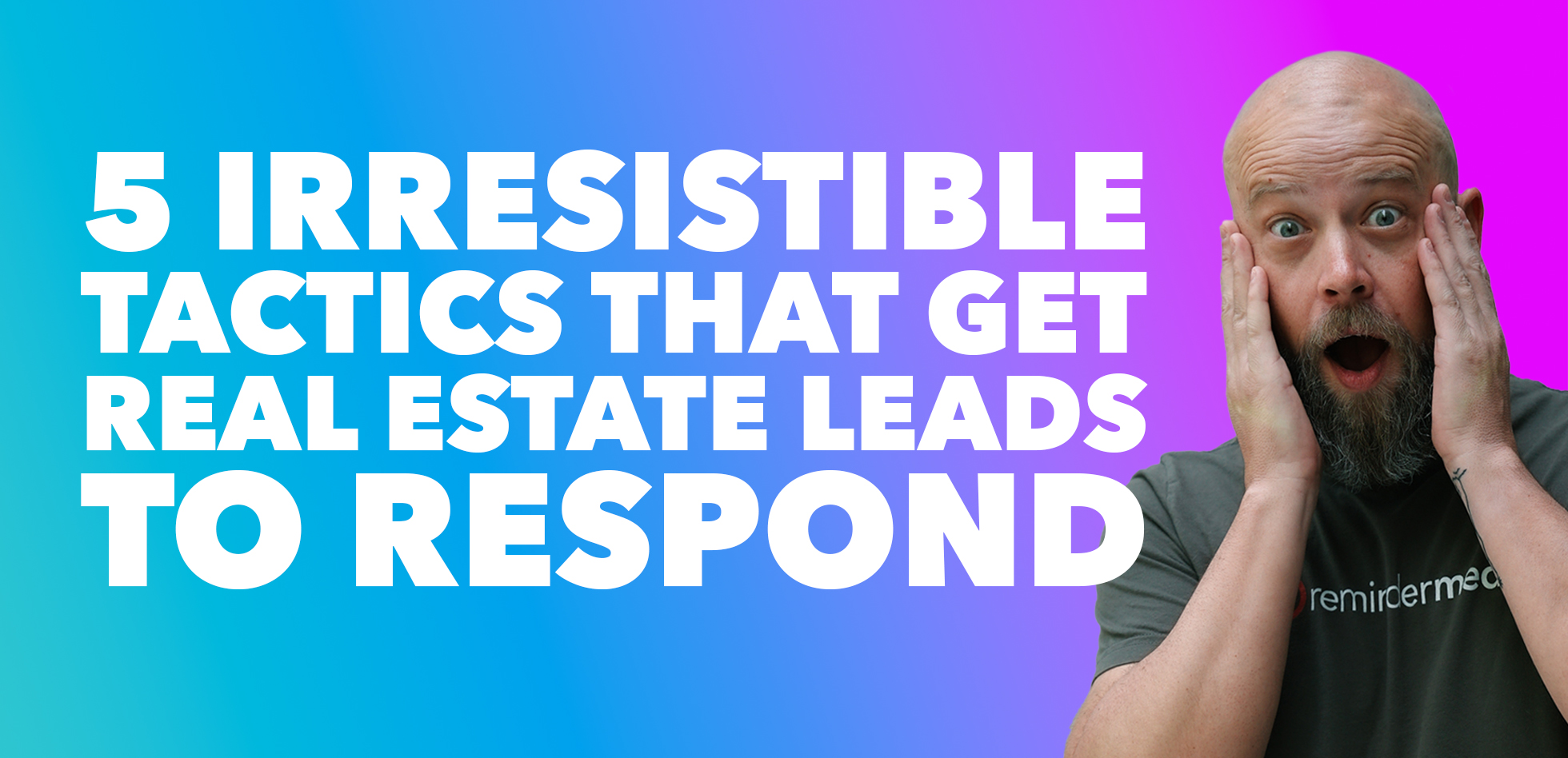

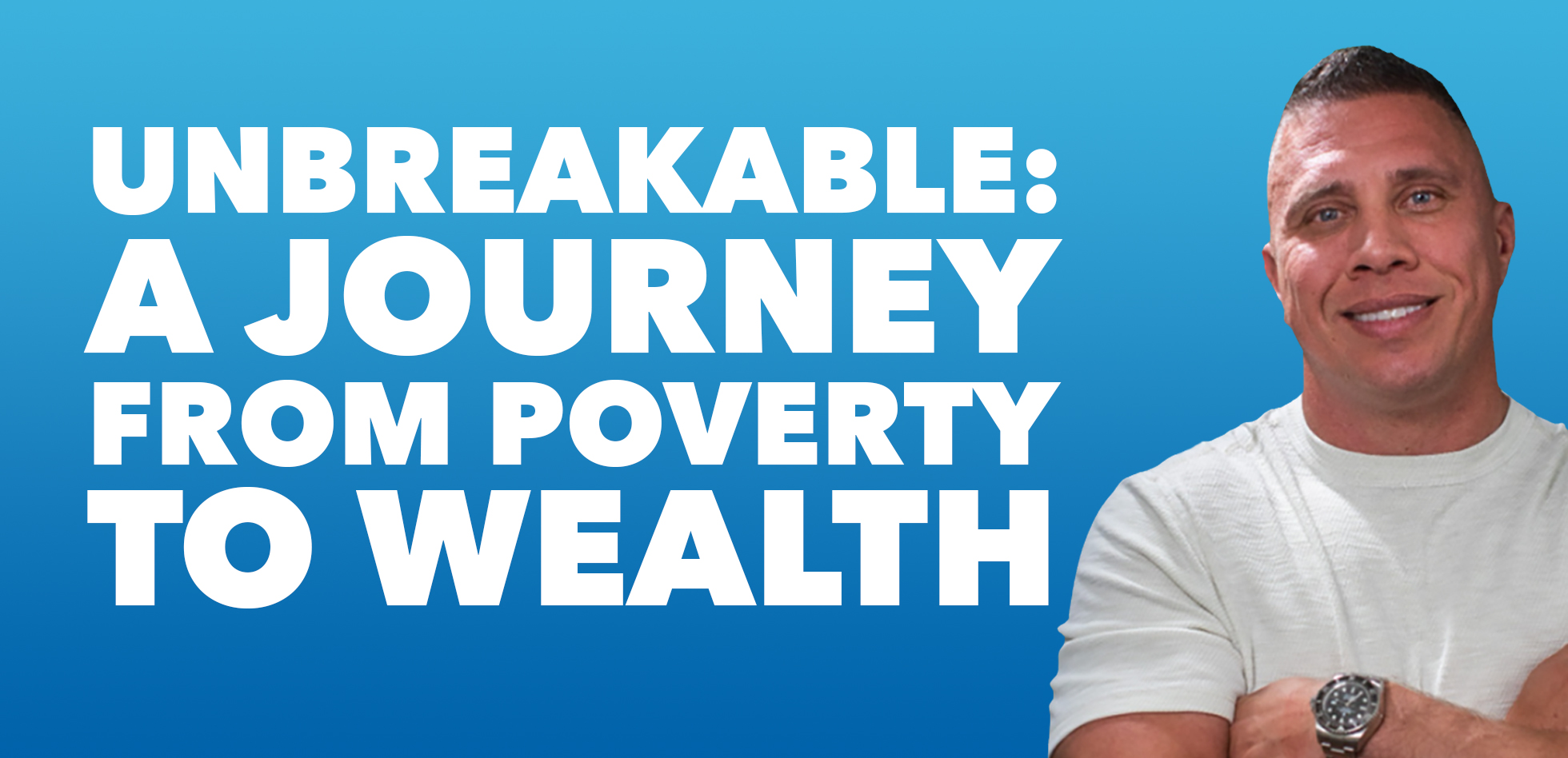
 Apple Podcasts
Apple Podcasts
 Google Play
Google Play
 Spotify
Spotify









